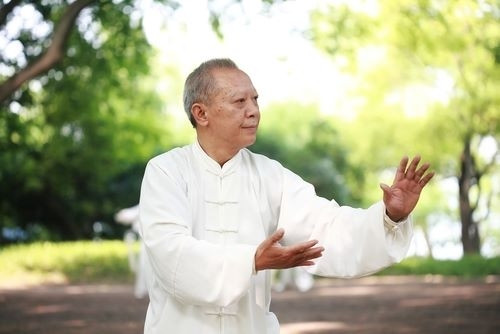Along with medication and proper nutrition, exercise plays a very important role in supporting treatment for people with cardiovascular disease.
Exercise improves and strengthens cardiovascular function

People with cardiovascular disease need to have an exercise method appropriate to their health condition.
The general goal of exercise for cardiovascular patients is to improve overall health by improving cardiovascular function. Therefore, exercise is effective and less stressful when it engages many muscle groups.
The benefits of exercise are due to regular, frequent, systematic maintenance, suitable to the physical and pathological characteristics of each person. The effectiveness of cardiovascular exercises depends on the frequency, intensity and duration of exercise.
Warm up thoroughly before each workout and cool down sufficiently after to help your body and cardiovascular system adapt to the amount of exercise.
To avoid overtraining, the practitioner needs to know how to determine the appropriate exercise intensity by using the heart rate to maintain during exercise using the formula: (220 - age) x (60% or 70%). For example, a 60-year-old person's maximum heart rate during exercise should only be: (220 - 60) x 70% = 112 times/minute.
The most effective and least harmful exercise method is interval training, alternating between difficult and easy exercises. The duration of each exercise should not be too long, and the level of exertion must be appropriate for each person. Exercise time is about 30-60 minutes per day or 150 minutes per week.
For people with weak physical condition, the exercise time can be shortened, or instead of exercising, they can perform daily activities such as gardening, cleaning the house, or all other possible daily activities.
Exercise for some common cardiovascular diseases
Arrhythmia
For these patients, it is advisable to focus on endurance training such as walking, jogging, etc. because improved overall health will help improve tolerance to cardiovascular dysfunction.
People with heart failure
It is necessary to consider choosing exercises appropriate to the level of heart failure and the body's ability to respond to movement.
Moderate exertion is considered an appropriate level of exercise. Research has shown that strength training such as lifting and pushing is safe and effective for people with cardiovascular disease. However, the load should be reduced and should not exceed 60% of the maximum load that can be lifted in a single movement.
Patients with heart failure often have weak muscles, so the load should be reduced and the number of repetitions per exercise increased. Strength exercises should be performed after general strengthening exercises.
Exercise is contraindicated in people with unstable angina; decompensated heart failure, dilated cardiomyopathy, severe valvular heart disease (especially aortic stenosis), active myocarditis, severe myocardial ischemia; severe arrhythmias such as ventricular tachycardia, complete atrioventricular block, high-frequency atrial arrhythmias, new or undetermined arrhythmias; uncontrolled hypertension, hypotension; severe physical weakness; progressive infection.
Ensure safe exercise
Appropriate time to practice, avoid unfavorable weather conditions, climate, environmental temperature. Do not practice when it is too hot, too cold, when you have just eaten or when you are too hungry….
Pay attention to each person's individual characteristics and health condition to choose the appropriate type of exercise. The intensity and volume of exercise must be appropriate and gradually increase according to the body's adaptability. Do not over-exercise or suddenly exercise heavily without adequate physical preparation.
Practitioners need to know how to self-check, monitor and recognize their health status and the effects of exercise on health through pulse rate (heart rate), blood pressure before and after exercise at different intensities, after adequate rest; appetite; sleep time and quality; changes in body weight, etc.
Promptly notify medical staff of any unusual symptoms to adjust and prevent complications caused by exercise.
According to Health and Life